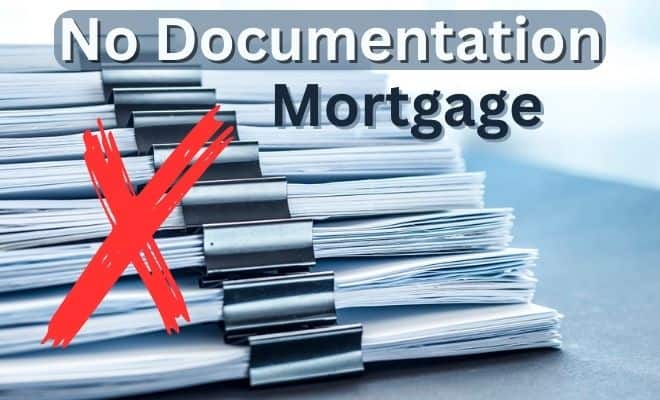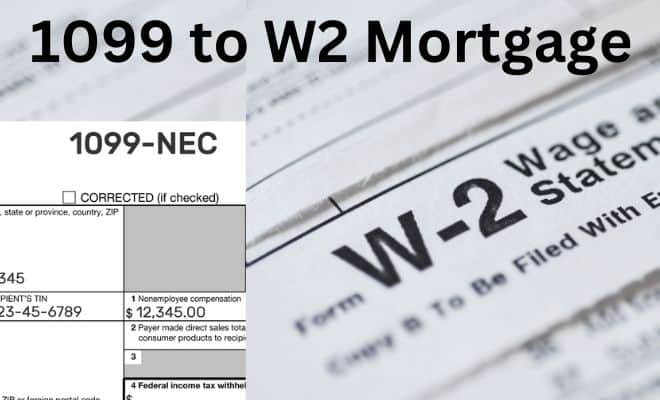Seller Concessions for Repairs
Seller concessions for repairs in real estate refer to when the seller agrees to cover cost of home repairs or the buyer’s closing costs in lieu of making the repairs.
These concessions and closing costs typically range from 2% to 6% of the home’s price. They can also be called seller credits.
In addition to the cost of repairs, seller concessions can include property taxes, title insurance, loan origination fees, inspection fees, appraisal fees, attorney fees, and mortgage points. Both buyers and sellers can also benefit from seller concessions.
They make the home purchase more affordable for buyers by reducing the amount they need to bring to closing. At the same time, sellers can attract more potential buyers, especially in a buyer’s market, and sell their homes faster.
For properties that are in complete disarray, seller concessions are harder to negotiate. Professional house buyers who purchase homes as-is don’t worry as much about the cosmetic condition. They’re likely to buy the property in its current condition for an agreed-upon price. Alex Capozzolo of SD House Guys, a company that buys houses as-is, stated “We don’t typically negotiate repairs. Instead, we factor our renovation costs into our initial offer. If it works for the seller, we buy the house as-is without any further negotiations. Ideally, there isn’t much back and forth.”
Click to Speak with Someone and to Get a Quote
Seller Concessions Defined
In real estate, seller concessions refer to a practice where the seller agrees to cover a portion of the repairs or closing costs incurred by the buyer. These closing costs typically range between 2% and 6% of the total home price.
By offering concessions, the seller helps the buyer by reducing the amount they must pay for repairs, or out of pocket costs at the closing table.
Seller concessions can take different forms, including covering specific closing costs or even a percentage of the total closing costs. The exact extent of the settlements is typically negotiated between the buyer and seller, with the terms outlined in the purchase agreement.
The purpose of seller concessions is to make the home purchase more affordable and more attractive for the buyer, as closing costs can add a substantial burden to their expenses. By spreading the financial burden, sellers make their properties more attractive and accessible to a broader pool of potential buyers.
It is important to note that seller concessions should not be confused with price reductions. While a price reduction involves lowering the actual selling price of the property, seller concessions deal specifically with the allocation of funds toward closing costs. In a situation where a closing cost concession is not enough to cover repairs to the home, then a price reduction may also be needed.
Understanding the concept of seller concessions is important when navigating the real estate market, whether you are a buyer or a seller.
We will explore who benefits from these concessions, the advantages and disadvantages, negotiation strategies, applicable limits, and more.
What Can Seller Concessions Cover?
Seller concessions in real estate can cover various expenses related to the home purchase. These concessions are negotiated between the buyer and seller, and they can vary based on the needs and preferences of both parties.
Here are some everyday items that seller concessions can cover:
- Closing costs: One of the most common uses of seller concessions is to cover a portion or all of the buyer’s closing costs. This can include expenses such as title insurance, attorney fees, appraisal costs, and loan origination fees.
- Mortgage points: Seller concessions can also be used to cover mortgage points. These are upfront fees paid to the lender in exchange for a lower interest rate. The seller can help lower the buyer’s long-term mortgage costs by covering these points.
- Inspection fees: In some cases, sellers may agree to cover the cost of home inspections, including general inspections, pest inspections, or other specialized inspections. This can provide peace of mind to the buyer and ensure that the property meets their expectations.
- Repairs and renovations: Another use of seller concessions addresses repair or renovation needs identified during home inspection. Sellers may agree to either cover the cost of these repairs upfront or provide a credit to the buyer at closing to address these issues.
- Property taxes and insurance: Depending on the timing of the purchase, seller concessions can also cover a portion of the upcoming property taxes or insurance premiums. This can help reduce the financial burden on the buyer during the early stages of homeownership.
It’s important to note that seller concessions are not limited to these specific items. The scope of benefits can be negotiated between the buyer and seller, considering their circumstances and priorities.
It is always recommended that both parties engage in open and transparent communication to ensure a mutually beneficial agreement.
Whether it’s reducing closing costs, addressing repairs, or alleviating other financial burdens, seller concessions can to make a deal work for both the buyer and seller.
How Seller Concessions for Repairs Works
In some instances, the home repairs that are needed may be identified prior to the home inspection. However, the home inspection should expose most of the things that are in need of repair.
Next there is a cost associated with the repairs and the total amount of those costs will help determine how the concessions will be allocated during closing.
If the costs are equal to or less than the total closing costs for the buyer, then the seller can provide those concessions in the form of a closing cost credit. However, if the costs are much higher, then a price reduction may also be needed to cover the cost of repairs.
The problem with reducing the sales price is the buyer will still need to find the out of pocket funds to make those repairs.
One other issue that could arise is if the buyer is using an FHA loan to purchase the home. With an FHA loan, the repairs must be made prior to closing which could delay the closing or even cancel the transaction completely.
A way to deal with the FHA issue is to apply for an FHA 203k rehab loan. With the FHA rehabilitation loan option, the buyer can roll the costs of the repairs into the loan and the repairs can be made after closing. The seller can still contribute towards closing costs as an offset.
Repairs that Can be Covered by Seller Concessions
Many homeowners do not want to make the repairs needed after the buyer’s home inspector has identified these issues via the inspection report. In most instances, the repairs include some of these issues with the home:
- Roof repair
- Plumbing
- Electrical
- HVAC
- Mold
- Termite Damage
- Septic or Well Repairs
- Foundation Damage
There may be other situations which can be costly such as foundation issues. This is why it is extremely important to find a reputable home inspector who will take the time to go through the entire home.
Case Study – Seller Concessions for Repairs
In a recent home sale, the buyer’s inspector found a few things that were in need of repair. The inspector also provided an estimate of what the costs would be to repair the items. They are listed below:
Toilet Was Not Draining Properly – There was some debris in the main waste line just past this particular toilet. It needed to get snaked by a plumber to free the clog. The cost was $675
Sinking Garage Apron – The cement apron in front of the two car garage was sinking and had cracked. It apparently was not poured properly when the home was built. The cost to break up the cement, prepare the ground with stone and pour a new slab was $1750
Broken Stove – The stove top was working but the gas oven portion was not. The stainless steel replacement and the cost to install was $1175
GFCI Outlets in Bathrooms – The bathrooms did not have GFCI outlets and the cost for an electrician to come in and install them was $235
The total cost of these repairs is $3,835. This is the amount the seller provided as a seller concession at the closing table. The home buyer’s closing costs on this loan were $7,089. After the seller concessions for repairs of $3,835, the buyer needed $3,254 for the balance of the closing costs.
Who Benefits From Concessions Buyers or Sellers?
Both buyers and sellers can benefit from a seller concession agreement. These are some of the benefits for both:
Buyer Benefits:
-
- Increased Affordability: Seller concessions can make purchasing a home more affordable for buyers by reducing the amount they have to pay at closing. Buyers can allocate their finances toward other home-related expenses by covering a portion of the closing costs.
- Reduced Financial Burden for Buyers: With seller concessions, buyers can mitigate the financial burden of closing costs. It can be particularly advantageous for first-time homebuyers or those with limited funds.
- Competitive Edge: In competitive real estate markets, where multiple offers may be presented for a single property, buyers who request seller concessions may have a strategic advantage. By reducing the buyer’s financial obligations, seller concessions can make an offer more attractive and help stand out.
Seller Benefits:
-
- Expanded Buyer Pool: Offering concessions can attract potential buyers to the seller’s property. By assisting with closing costs, sellers may entice individuals who might otherwise struggle to afford the purchase. This can potentially lead to a faster sale and potentially multiple competing offers.
- Enhanced Marketability: Seller concessions can make a property more appealing in a buyer’s market. By providing financial assistance, sellers can differentiate their listing from others and increase its perceived value. This can result in more buyer interest and potentially higher offers.
- Efficient Transaction Process: By addressing some of the buyer’s closing costs, sellers can facilitate a smoother transaction. This is because reduced financial burdens for the buyer may result in fewer delays, fewer negotiation points, and overall streamlined negotiations.
- Repairs Not Needed: Seller can defer the time and energy needed to make the repairs to the buyer.
In summary, buyers and sellers can reap the benefits of seller concessions in real estate. Buyers gain increased affordability, reduced financial burden, and a potential competitive advantage, while sellers attract a wider buyer pool, enhance marketability, and expedite the transaction process.
Advantages And Disadvantages Of Seller Concessions
Regarding seller concessions in real estate, there are advantages and disadvantages. Let’s delve into these factors:
Advantages of Seller Concessions:
-
- Increased affordability: Seller concessions can make purchasing a home more affordable for buyers. Buyers can allocate their funds toward other expenses or investments by reducing the amount required for closing costs.
- Competitive edge: Offering seller concessions can make a buyer’s offer more appealing, especially in a competitive market. When there are multiple buyers are interested in a property, concessions can help differentiate a bid and increase the chances of acceptance.
- Faster home sale: In certain situations, seller concessions can expedite the home-selling process. By attracting more potential buyers, sellers can secure a deal and close the transaction more quickly.
Disadvantages of Seller Concessions:
-
- Reduced net proceeds: Sellers should know that offering concessions means receiving less net proceeds from the sale. These concessions essentially mitigate the seller’s overall profit.
- Perceived weakness: Some sellers might view buyers requesting concessions as less desirable, perceiving them as financially less qualified or less capable of meeting their obligations. In a seller’s market, where there are often bidding wars for homes, this could put the buyer at a disadvantage in highly competitive situations.
- Limits on negotiations: Certain loan types restrict the amount of concessions a seller can provide. Buyers should be aware of these limitations and consider them when negotiating with sellers.
How To Negotiate Seller Concessions
Negotiating seller concessions is an essential part of the real estate buying process. It allows buyers to save money and make the purchase more affordable potentially. Here are some steps to effectively negotiate seller concessions:
- Conduct thorough market research: Before starting negotiations, it is helpful to have a good understanding of the local real estate market. Look for comparable properties and their selling prices to determine a fair value for the home you are interested in.
- Get pre-approved for a loan: Preapproval for a mortgage loan can strengthen your negotiating position. Sellers are more likely to consider concessions when they know you have the financial means to close the deal.
- Determine your priorities: Determine which closing costs are most important to you. This will help you focus your negotiation efforts on specific expenses, such as property taxes or insurance.
- Consult with your real estate agent: A knowledgeable real estate agent can provide valuable guidance during negotiation. They can help determine a reasonable concession request and advise on the best approach to make your offer appealing to the seller.
- Make a reasonable initial offer: Start with a fair offer considering both the property’s market value and your desired concessions. Your proposal should be based on thorough research and realistic expectations.
- Justify your concession requests: Explain to the seller why you are requesting concessions. Highlight any challenges you may face with the closing costs and how these concessions would make the purchase more feasible.
- Consider a win-win solution: Negotiations should be a collaborative process. Look for ways to meet the seller’s needs while achieving your objectives. This can involve proposing alternative terms or adjusting other elements of your offer.
- Stay flexible: Be open to compromise and consider adjusting your concession requests based on the seller’s counteroffers. Remember that negotiations are a give-and-take process.
- Get everything in writing: Once you reach an agreement with the seller, make sure all the details of the concessions are clearly stated in the purchase contract. A written agreement helps avoid potential misunderstandings and ensures that both parties are on the same page.
Following these steps can help you navigate the negotiation process and increase your chances of securing seller concessions that make your home purchase a reality for you.
Are There Limits To Seller Concessions?
Regarding seller concessions, there are limits that buyers and sellers need to be aware of. These limits prevent the real estate market’s inflation and ensure fair transactions. The specific amount a seller can contribute depends on the type of loan the buyer is obtaining.
Regulatory authorities have established guidelines for seller concessions, with the lesser value between the sale price and appraised value usually determining the maximum amount a seller can pay in concessions.
Different loan types also have varying limits on the percentage of the purchase price that seller concessions can cover.
In conventional loans, if the buyer’s down payment is less than 10%, the seller can typically contribute up to 3% of the purchase price in concessions. If the down payment is between 10% and 25%, the seller can contribute up to 6%.
For FHA loans, the seller can contribute up to 6% of the purchase price, regardless of the buyer’s down payment. VA loans also allow seller concessions of up to 4% of the loan amount. USDA loans have a maximum limit of 6% as well.
Buyers and sellers need to understand these limits when negotiating seller concessions. Buyers must consider their loan type and down payment amount to determine how much they can request accommodations. Sellers must know the restrictions and how they may impact their negotiation strategy.
Additionally, sellers should remember that other demands or requests from the buyer and concessions can complicate the transaction. Simplifying the offer and focusing on the concessions can help streamline the negotiations and reach a mutually beneficial agreement.
Working with a real estate agent who is knowledgeable about seller concessions and the current market conditions can be invaluable in navigating these limits and optimizing the negotiation process. They can guide the best approach to maximize settlements within the established boundaries.
Overall, while there are limits to seller concessions, they still offer an opportunity for buyers to reduce their upfront costs and for sellers to attract more potential buyers. Understanding the specific limitations based on loan type and making informed decisions during the negotiation process is helpful.
Summary of Seller Concession Limits By Loan Type
Regarding seller concessions, it’s essential to understand that the amount a seller can contribute varies depending on the type of loan the buyer is obtaining. Different loans have different limits set by regulators to prevent market inflation.
Let’s explore the seller concession limits based on common loan types:
Conventional Loans
-
- If the down payment is less than 10%, the seller is permitted to contribute up to 3% of the total closing costs.
- If the buyer’s down payment is between 10%-25%, the seller can contribute up to 6% of the total closing costs.
FHA Loans
-
- The seller can contribute up to 6% of the total purchase price. However, remember that the buyer’s down payment and credit score could impact the amount allowed.
VA Loans
-
- The seller can contribute up to 4% of the total purchase price towards closing costs for VA loans. However, similar to FHA loans, certain factors may affect the amount that can be contributed.
USDA Loans
-
- The seller can contribute up to 6% of the total purchase price towards closing costs with USDA loans.
Buyers must understand the loan type they are pursuing and its respective seller concession limits. By being aware of these limits, buyers can make informed and smarter decisions for themselves.
Seller Concession vs. Price Reduction
When negotiating the terms of a real estate transaction, sellers have two options: offering concessions or reducing the price of the property. Both strategies aim to attract buyers and facilitate the sale, but their approach and impact on the buyer and seller differ.
1. Seller Concessions: As discussed, seller concessions involve agreeing to pay a portion of the buyer’s closing costs. These costs include property taxes, title insurance, loan origination fees, inspection fees, appraisal fees, attorney fees, and mortgage points. The seller essentially reduces the buyer’s financial burden at closing by offering concessions.
2. Price Reduction: Conversely, a price reduction means lowering the property’s asking price. This reduction directly affects the overall purchase price, reducing the amount the buyer needs to pay out of pocket. Price reductions can attract potential buyers whom a higher initial purchase price might deter.
Are There Tax Consequences To Seller Concessions?
Regarding seller concessions in real estate, one important consideration is the potential tax consequences. While seller concessions can make the home-buying process more affordable, you should be aware of any tax implications that may arise.
The tax consequences of seller concessions can vary depending on multiple factors, including the specific type of concession, the buyer’s financial situation, and applicable tax laws.
Buyers need to consult with a tax professional or real estate attorney to understand how seller concessions may impact their tax obligations.
Seller concessions are typically not considered taxable income for the buyer. For instance, if the seller contributes a certain percentage toward the buyer’s closing costs, that amount is not added to the buyer’s taxable income.
However, it’s important to note that certain concessions, such as a reduction in the purchase price or a cash-back incentive, may have different tax implications. These concessions could affect the buyer’s tax liability and should be evaluated carefully.
Sellers should also be aware that providing concessions may have tax consequences. Depending on the nature of the concessions and the seller’s financial situation, they may be subject to capital gains tax or other applicable taxes. Sellers should consult with a tax professional to understand their tax obligations.
Both buyers and sellers should thoroughly understand the potential tax consequences of seller concessions before finalizing any agreements.
Individuals can make informed decisions and avoid unexpected tax liabilities by seeking professional advice and understanding the tax implications.
The Bottom Line On Selling Concessions
Regarding seller concessions in real estate, buyers and sellers can benefit from this arrangement. For buyers, seller concessions can make purchasing a home more affordable by reducing the amount they must pay at closing. This can be particularly advantageous for first-time homebuyers or those who may be tight on funds.
On the other hand, sellers can use concessions as a strategy to attract potential buyers, especially in a buyer’s market where competition is fierce. Offering concessions gives sellers an edge by making their property more appealing and potentially leading to a faster sale. However, buyers and sellers must carefully consider the advantages and disadvantages of seller concessions.
While concessions can be beneficial, they can also impact the final sale price and potential negotiations. Buyers should be aware that asking for too many concessions may make their offer less attractive to sellers, especially in a sellers’ market where demand is high.
To negotiate seller concessions effectively, it’s essential to have a solid understanding of today’s real estate market. Sellers may be more willing to offer concessions in a buyer’s market or if their property has been on the market for an extended period.
It is also important to keep other demands to a minimum when requesting concessions, as sellers prefer less complicated offers. Working with a real estate agent with experience negotiating concessions can be extremely helpful.





